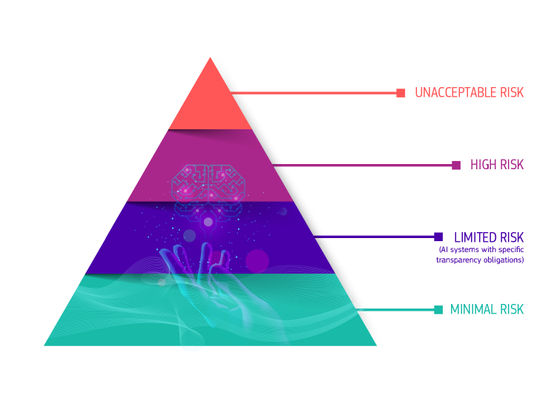Argument that AI regulation will ``will bring a new era of biometric authentication surveillance'' on the contrary

New AI (artificial intelligence) regulations are being discussed in the EU, but in contrast to the current draft regulations, the new regulations may usher in a new era of biometric authentication surveillance rather than enabling safe AI operation. There are voices to the contrary.
Ban Biometric Surveillance - Access Now
Europe's AI rules open door to mass use of facial recognition, critics warn – POLITICO
https://www.politico.eu/article/eu-ai-artificial-intelligence-rules-facial-recognition/
While AI is developing rapidly, it has been pointed out that emotional recognition AI with insufficient scientific evidence ``promotes discrimination,'' and that sentence generation AI has the risk of producing false information. And there are many problems. For this reason, there are increasing voices, including Google CEO Sundar Pichai, who argue that ``AI should be regulated.''
Under these circumstances, the European Commission , the EU's policy enforcement agency, submitted a new law to parliament in April 2021 to impose restrictions on the use of AI.
The EU submits to parliament a new law regulating artificial intelligence - GIGAZINE

The new law classifies areas where AI is used into four categories: unacceptable risk, high risk, limited risk, and minimal risk, with different limits applied to each category. thing. Companies that do not comply with the regulations will be fined up to 6% of their global annual revenues.

However, the above bill limits some of the operations of AI and does not completely prohibit the use of AI. It seems to be a compromise between 'protecting citizens' privacy' and 'government demand for technology to fight terrorism and crime', and 'when fighting serious crime, AI is an exception'. It is considered a problem that it includes a clause that 'allows the use of
For this reason, the American digital rights group 'Access Now' has released an open letter opposing the bill. The open letter claims that ``the use of technology such as facial recognition in public places is against human rights and civil liberties,'' and has 170 signatures from 55 countries.
``This letter shows that there are organizations, citizens, activists, and engineers around the world who have agreed to raise their voices about human rights concerns,'' said Access Now's Daniel Rufer.
While acknowledging that the EU's AI regulation is an opportunity to take 'pioneering steps to properly ban AI to protect fundamental human rights,' Rufer points out current problems. For example, if AI regulation is passed in the EU, other countries, including Brazil, may follow suit. This is expected because many countries have adopted data protection regulations similar to
In addition, previous research has pointed out that facial recognition technology is less accurate for people of color, and insufficient rules may lead to human rights violations in the operation of these technologies.

The letter also called on the United Nations High Commissioner for Human Rights to 'condemn the use of facial recognition technology for surveillance.' The reason is that many people can recognize the problem by discussing the problems of face recognition technology by the United Nations.
In addition to this, Access Now also wants to call on investors and technology companies to stop developing or funding facial recognition technology for surveillance.
Related Posts:
in Software, Posted by darkhorse_log






